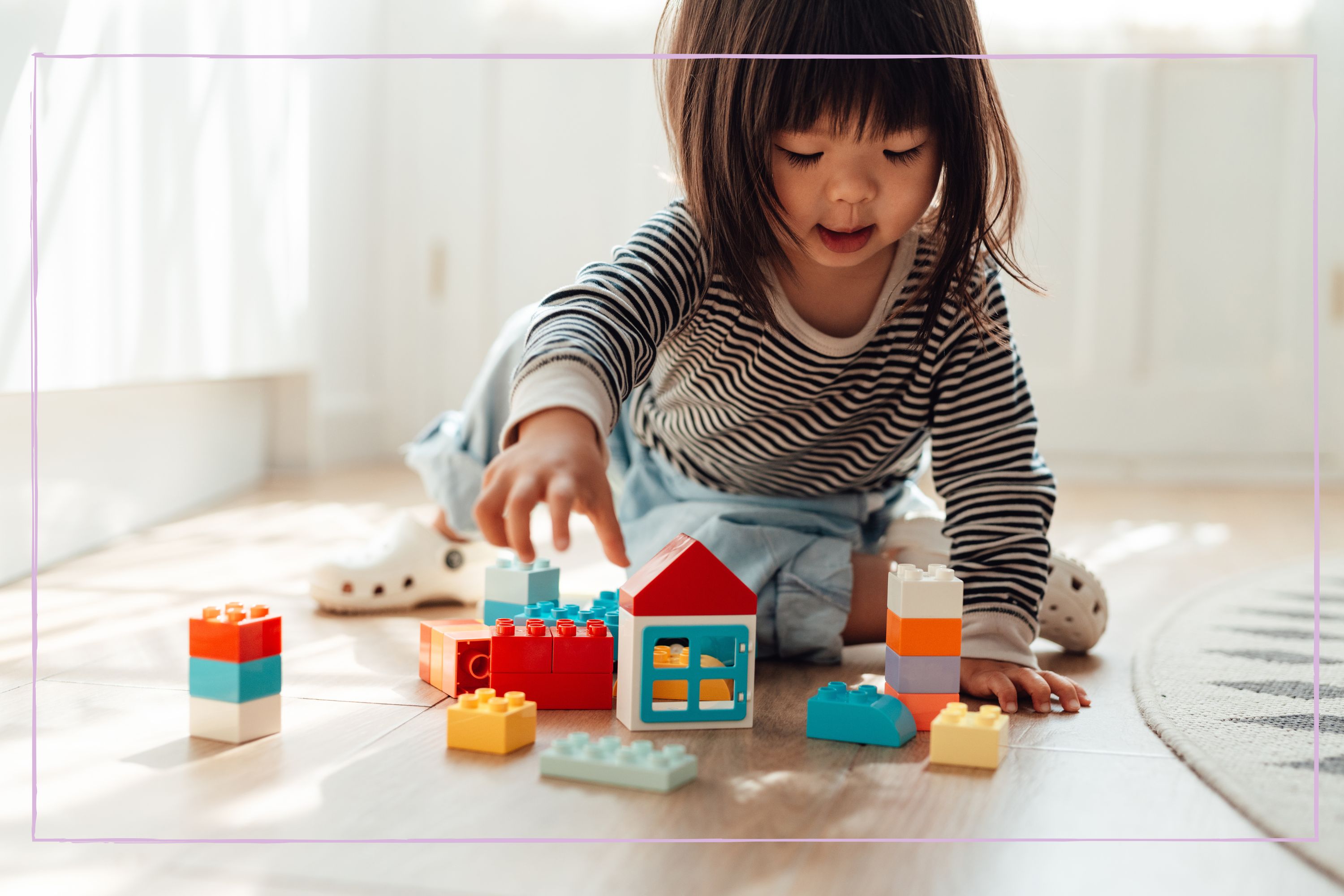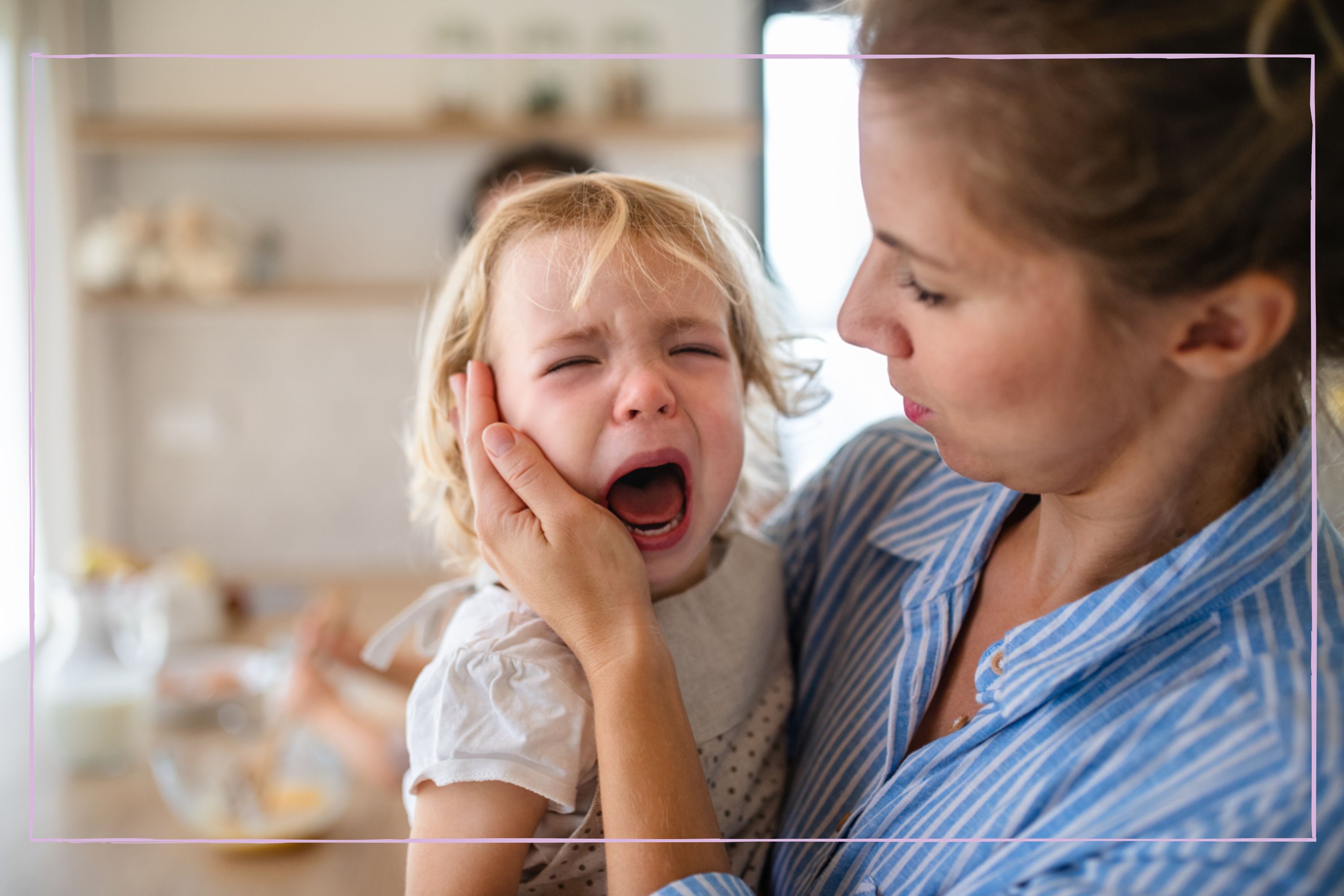'It's the foundation for resilience and growth' - 5 reasons to let your kid fail, according to a teacher (even though it can feel hard to do)
Pro tips on letting your kids live through 'natural consequences' and why it's good for them


Letting your kids fail helps them learn, and one teacher has shared five reasons why. Here's what you need to know...
As children move through the child development stages, they're learning new things all the time. Parenting styles and types of play can influence their development, but one expert has shared that even making mistakes is important for children's learning, arguing that we should be allowing our children to fail more often.
Katie Plunkett - aka @kidtalk.co on Instagram - is a full-time teacher and educator, and is passionate about child development. She's gained over 350,000 followers on Instagram for her parenting advice and, most recently, she's shared why it can be crucial to allow your kid to fail.
In a carousel post titled, "You should let your kid fail. Here's why..." Katie shares five reasons why it can be beneficial for children to make mistakes. In the caption she writes, "It’s okay (and actually very beneficial) to let our kids experience failure. It helps them to build character, enhance problem-solving capabilities, learn from mistakes, gain independence, and develop emotional intelligence."
Katie adds, "When we shield our kids from ever experiencing failure, we are shielding them from all of its benefits, too."
5 reasons why you should let your kid fail
A post shared by Katie Plunkett
A photo posted by kidtalk.co on
- Experiencing failure builds character: Research by Dr. Carol Dweck indicates that kids who have experienced failure are more likely to be empathetic and show kindness.
- Experiencing failure enhances problem solving: According to a study in the Journal of Experimental Social Psychology, children who fail and try again approach problems more creatively in the future.
- Experiencing failure leads to learning: Research by clinical psychologist Dr Jason Moser shows that making mistakes enhances brain activity, prompting deeper learning.
- Experiencing failure fosters independence: Developmental scientist Dr Holly Brophy-Herb notes that children who tackle their own problems often grow into adults with greater confidence and decision-making abilities.
- Experiencing failure builds emotional intelligence: Children with the opportunity to make mistakes learn to manage disappointment, maintain motivation and develop adaptive skills.
Acknowledging that it's not easy for parents to see their children fail, Katie explains, "I know, it can be an absolute gut-punch to watch our kids struggle - but it’s an essential part of their growth. Failure is inescapable in the real world. Don’t we want our little ones to develop the toolset to handle this on their own in the future?"
And Katie's followers were quick to agree with her advice. One Instagram user commented, "I absolutely agree. When they fail, they learn. We just have to be there to let them understand the situation and guide them through it". Another added, "Great post. Let them learn instead of fixing everything for them will make them independent".
GoodtoKnow Newsletter
Parenting advice, hot topics, best buys and family finance tips delivered straight to your inbox.
Meanwhile, many were quick to add that the advice applies to everyone, not just kids. One follower commented, "True for any age. Don’t make excuses for them but help them sit with it, learn and then move on and don’t dwell on it further." Another user wrote, "It's holds relevant to the grown up adults too".
In other parenting news, we've looked at how to teach children emotional intelligence, and why LEGO is great for young children’s development. Elsewhere, a child psychologist has shared three reasons why punishments don’t improve kids’ behaviour – and #2 makes so much sense.

Ellie is GoodtoKnow’s Family News Editor and covers all the latest trends in the parenting world - from relationship advice and baby names to wellbeing and self-care ideas for busy mums. Ellie is also an NCTJ-qualified journalist and has a distinction in MA Magazine Journalism from Nottingham Trent University and a first-class degree in Journalism from Cardiff University. Previously, Ellie has worked with BBC Good Food, The Big Issue, and the Nottingham Post, as well as freelancing as an arts and entertainment writer alongside her studies. When she’s not got her nose in a book, you’ll probably find Ellie jogging around her local park, indulging in an insta-worthy restaurant, or watching Netflix’s newest true crime documentary.
-
 The 'incredibly helpful' 30-second rule – liked by nearly 2 million people – that your kid needs to know about
The 'incredibly helpful' 30-second rule – liked by nearly 2 million people – that your kid needs to know aboutThis useful piece of advice is worth remembering for all of us, not just our children
By Adam England
-
 What is ‘sturdy parenting’? Child psychologist Dr Becky explains the benefits of this technique
What is ‘sturdy parenting’? Child psychologist Dr Becky explains the benefits of this techniqueIf you're at a loss when it comes to disciplining your kids, sturdy parenting might help - and it's approved by child psychologist Dr Becky.
By Ellie Hutchings
-
 3 tips to set screen time boundaries from parenting experts Dr Becky Kennedy and Professor Emily Oster - and #1 is an important reminder
3 tips to set screen time boundaries from parenting experts Dr Becky Kennedy and Professor Emily Oster - and #1 is an important reminderStruggling to set screen time boundaries with your kids? Parenting experts Dr Becky Kennedy and Professor Emily Oster have shared three top tips.
By Ellie Hutchings
-
 Could 'lazy parenting' be the next big thing? 2 psychologists share why it can be beneficial for development, but not everyone agrees
Could 'lazy parenting' be the next big thing? 2 psychologists share why it can be beneficial for development, but not everyone agrees'We need more lazy parents' and here's why, according to two child psychologists
By Ellie Hutchings
-
 Parents, do you know what H.E.L.P. stands for? Psychologists swear by this acronym to navigate those tough parenting moments we all face
Parents, do you know what H.E.L.P. stands for? Psychologists swear by this acronym to navigate those tough parenting moments we all faceRemember: Halt, Empathy, Limits, Proximity...
By Ellie Hutchings
-
 Sticker charts 'don't work in the long run' says psychotherapist - try these 8 tips to teach kids intrinsic motivation instead
Sticker charts 'don't work in the long run' says psychotherapist - try these 8 tips to teach kids intrinsic motivation insteadOne expert has explained eight things you can do as a parent to help your child develop intrinsic motivation - and it means abandoning the sticker chart.
By Ellie Hutchings
-
 Reflective parenting could help your teenager manage their big emotions, new research shows - here are 5 steps to try
Reflective parenting could help your teenager manage their big emotions, new research shows - here are 5 steps to tryThe teenage years are tough for everyone involved. But research has suggested that an approach known as 'reflective parenting' can be the key to reconnecting.
By Ellie Hutchings
-
 These 5 'game changing' phrases can teach your children about the mental load, according to a psychologist - and it could set them in good stead for adulthood
These 5 'game changing' phrases can teach your children about the mental load, according to a psychologist - and it could set them in good stead for adulthood"Change at home can change society"
By Ellie Hutchings